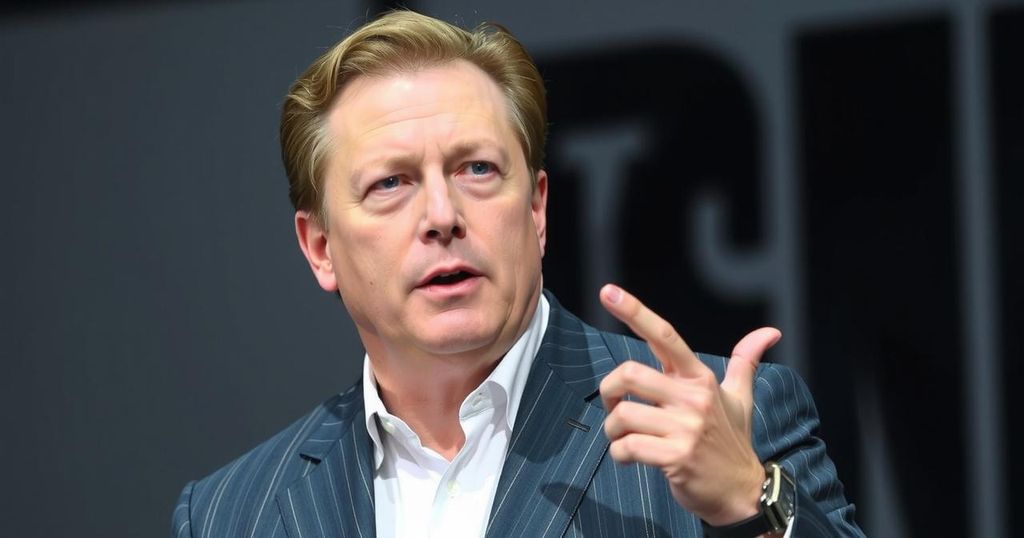Elon Musk’s Endorsement of AfD Sparks Political Controversy in Germany

Elon Musk has endorsed the far-right AfD party in Germany, sparking backlash from government officials who accuse him of attempting to influence the federal election. The controversy raises questions about foreign influence in domestic politics and the limits of free expression.
In a recent controversy, Elon Musk publicly endorsed the far-right Alternative for Germany (AfD) party in a commentary for “Welt am Sonntag,” a prominent German newspaper. This endorsement has raised significant alarm among German officials, particularly with parliamentary elections set for February. A spokesperson for the German government stated that Musk’s actions are viewed as an attempt to influence the electoral process, although he acknowledged Musk’s right to express his opinions. Musk emphasized his belief that the AfD could lead Germany to a more prosperous and innovative future, justifying his commentary by referencing his investments in the country.
Musk’s declaration that “only the AfD can save Germany” has ignited debate regarding the limits of free speech and the impact of foreign investors on national politics. The spokesperson also remarked, “After all, freedom of opinion also covers the greatest nonsense,” reflecting a critical view of Musk’s recent statements. The tensions surrounding this situation have continued to unfold as various media outlets in Germany discuss the implications of Musk’s intervention in their political landscape.
Elon Musk, a prominent billionaire known for his controversial statements and political interventions, has recently taken a stance that could potentially affect the political climate in Germany. His endorsement of the far-right AfD party occurs as Germany prepares for crucial parliamentary elections in February. The AfD has been categorized by critics as a right-wing extremist party, despite the party leader’s progressive personal circumstances, which has sparked fierce debate within German society about the nature of its political identity. Musk’s involvement is not isolated, as he has a history of vocal support for political figures like former U.S. President Donald Trump, raising further questions about international influences on local politics.
In summary, Elon Musk’s endorsement of the AfD has provoked significant backlash from German officials who accuse him of attempting to sway the upcoming federal election. Despite Musk’s assertion of his right to express opinions as an investor, the reaction underscores the sensitive intersection between foreign investment and domestic political affairs. This controversy highlights broader issues regarding the boundaries of free expression and the role of influential figures in shaping political narratives across borders.
Original Source: www.hindustantimes.com




